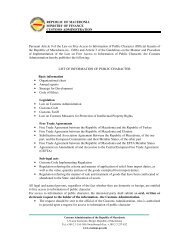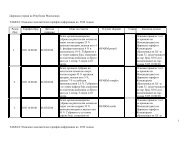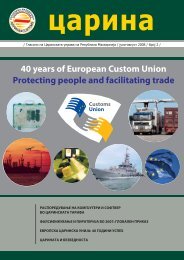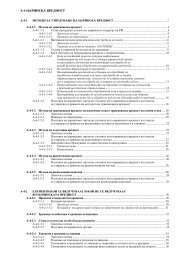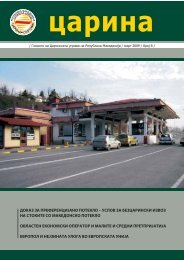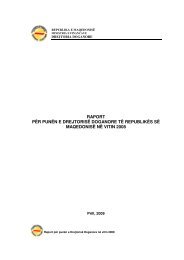REGIONAL COOPERATION AND ECONOMIC INTEGRATION
REGIONAL COOPERATION AND ECONOMIC INTEGRATION
REGIONAL COOPERATION AND ECONOMIC INTEGRATION
Create successful ePaper yourself
Turn your PDF publications into a flip-book with our unique Google optimized e-Paper software.
PART IV:<br />
of involving Serbia in a unique European high education area, which creates conditions for<br />
higher mobility of students.<br />
As it is already mentioned, in Serbia standards for accreditation are adopted, too, in<br />
order to improve quality of higher education institutions and programmes. Standards for<br />
accreditation of higher education institutions comprise 13 standards. They are as follows:<br />
basic tasks and aims of a higher education institution, planning and monitoring, organization<br />
and management, studies, educational-scientific and artistic work, academic staff, nonacademic<br />
staff, students, facilities and equipment, library, course books and information<br />
technology, financial resources, inner mechanisms for quality assurance, public character<br />
of their work. Twelve accreditation standards of the study programmes are: the structure,<br />
purpose and objectives of the curricula; competences of the graduates; curriculum; quality<br />
and international compliance of study program; enrolment of students, their grading and<br />
promotion; the faculty staff; material resources; quality control; and distance learning.<br />
Obviously, the purpose of Standards for accreditation of higher education institutions is<br />
assuring the quality of their work by making it better. Namely, higher education institutions<br />
are required to define clearly and in detail strategy of ensuring the quality of teaching<br />
process, management of higher education institution, extracurricular activities, as well as<br />
conditions of work and study. Higher education institutions are especially urged to monitor<br />
the quality of teaching, conducting the exams, students’ efficacy during the course of their<br />
studies in the whole as well as in specific subjects, the quality of the course books, and<br />
taking actions for removing perceived faults. It is important to emphasize the active role<br />
that students have in adopting and implementing the strategy of quality assurance. The<br />
assessment of teaching process quality, established through a poll given to students, is<br />
especially important.<br />
The purpose of Standards for accreditation of study programmes is improving their quality,<br />
which is a prerequisite in students’ obtaining competence and, consequently, creating highquality<br />
and competent human resources. Study programme quality control implies constant<br />
and systematic monitoring of its realization and taking actions for the improvement of the<br />
quality regarding curriculum, teaching, professors, assessment of students’ course books<br />
and required literature. These measures aim to ensure obtaining competence and academic<br />
skills which are socially justified and useful. Attempts are made to achieve both development<br />
of creative skills and acquiring specific practical skills needed for practicing a profession.<br />
Specifically, the main aim of the Standards for accreditation of study programmes is<br />
encouraging development of competences, namely general competences or transferable<br />
competences and course-specific competences which serve the function of realizing<br />
professional and scientific occupation at a high level of quality. Focus on the results of<br />
study programmes expressed in competences is rather evident. Hence, competences, by<br />
which we imply synthesis of theoretical and practical professional knowledge and skills,<br />
are a global aim of education. (Devjak, 2008, pp. 2).<br />
Implementation of quality of standards, established in the Law on Higher Education and<br />
Bylaws on standards is of essential importance for the improvement of the quality of higher<br />
education system and involvement of the Republic of Serbia in the unique European area<br />
of higher education.<br />
236



